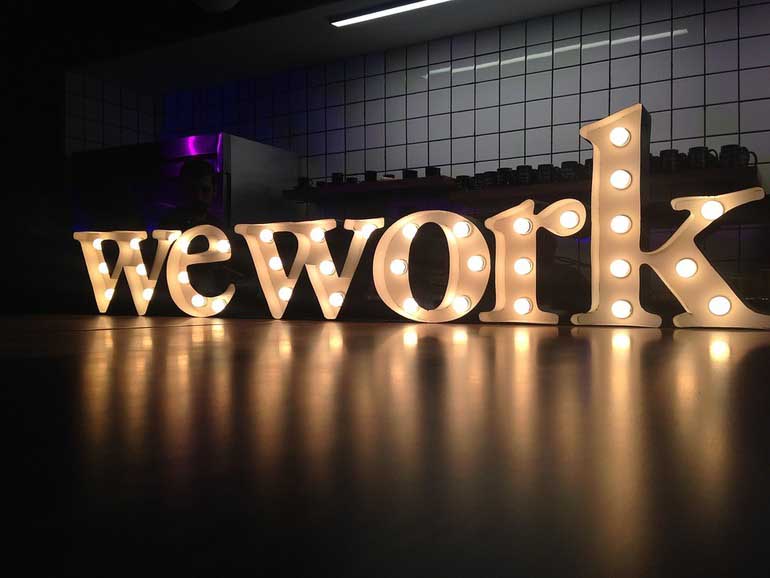WeWont Pay For Meat: The New Veggie Diktat
- By Loading...
- | 26 July 2018 12:12 PM IST
 X
X
Imagine if your annual appraisal not only took into account whether you’d failed to meet your targets for the year, but also how many times you’d sinned and eaten pork momos at the office or while travelling on work? This might just well be the case for employees of WeWork USA who’ve been given dietary restrictions at work.

Earlier this month, a memo was sent out to employees of the office space giant WeWork in the US, informing them that the company will no longer serve red meat, pork or poultry at company functions. Neither would it reimburse employees who wanted to order beef tacos during a lunch meeting. The company’s co-founder and chief culture officer, Miguel McKelvey said that the new dietary diktat was driven mainly by a concern for the environment, and, to a lesser extent, for animal welfare. The memo states that, “New research indicates that avoiding meat is one of the biggest things an individual can do to reduce their personal environmental impact — even more than switching to a hybrid car… and WeWork could save over 15 million animals by 2023 by eliminating meat at our events.”
Seafood is on the menu (for now) as are eggs, dairy and alcohol, but plans to review their consumption at work are being discussed. (This is something that has always perturbed me. Why do animal lovers not think that fish and crustaceans are worthy of their love and protection?)
Yes, it’s good to hear about a company which cares about anything other than their bottom line, but I am torn about whether an employer caring for the environment should mean that free choice has to take a backseat. Of course, any company is within its legal rights to tell employees what can or can’t be brought into or eaten in its premises. It is a bit much, though, to dictate what people can eat while outside office, while travelling on work.
Unsurprisingly India was first off the bat when it came to a similar curtailment of free choice by companies. Way back in 2014, an aggrieved non-vegetarian rebel from The Hindu’s Chennai office leaked an internal notice to employees to cease and desist from bringing non-vegetarian food into the office dining area. The Hindu might well have been living up to its name. If an employee wanted to eat meat, they were most welcome to eat it outside the dining hall. According to the organisation, “non-vegetarian food causes discomfort to the majority of the employees who are vegetarian”, even as research has shown that only 6% of Chennai's residents are vegetarian.
Essar’s head office in Mumbai has a 100% shudh shakahari policy in the canteen as well. Times Group’s Good Food magazine began publishing only vegetarian recipes and columnists were asked to only include vegetarian food in their articles. Masterchef India turned vegetarian for a year. Of course, none of these Indian companies were undertaking these measures in support of the environment, but because of that quaintly Indian habit of being offended by something which doesn’t affect you directly.
Research by US-based anthropologist Balmurli Natrajan and India-based economist Suraj Jacob, has found that only about 20% of Indians are actually vegetarian. Hindus (not to be mistaken with those who work at The Hindu) make up 80% of the Indian population and are primarily meat-eaters. Only a third of the privileged, upper-caste Indians are vegetarian. So to claim that Masterchef needs to turn vegetarian or The Hindu’s employees need to shun eating meat in office out of deference to popular taste, is as far removed from fact as possible.
Now, while WeWork’s heart seems to be in the right place, the question is whether their facts are in the right place or not. According to The Guardian, a “new study, published in Environmental Research Letters, sets out the impact of different actions on a comparable basis. By far the biggest ultimate impact is having one fewer child, which the researchers calculated equated to a reduction of 58 tonnes of CO2 for each year of a parent’s life. The figure was calculated by totting up the emissions of the child and all their descendants, then dividing this total by the parent’s lifespan.”
After analysing dozens of sources from Europe, North America and Japan to calculate the carbon savings individuals in richer nations can make, researchers found that getting rid of a car saved 2.4 tonnes of CO2 a year, avoiding a return transatlantic flight saved 1.6 tonnes and becoming vegetarian saved 0.8 tonnes a year. So, will a few hundred officer-goers turning vegetarian at a lunch meeting make the dent the environment needs? Wouldn’t it be wiser to incentivise employees to go vegetarian? Give them a bonus if their stool test proves they’ve actually gone green!
Since free choice is being ignored as it is, for the sake of the environment, environmentally aware and personal choice-averse companies should aim for maximum impact. They should stop focusing on ham and cheese sandwiches and instead ban any employee from having more than one child. Now that would be truly reducetarian. Till such time, I’d say organisations should unhand their employees’ lunches and step back from the table.



